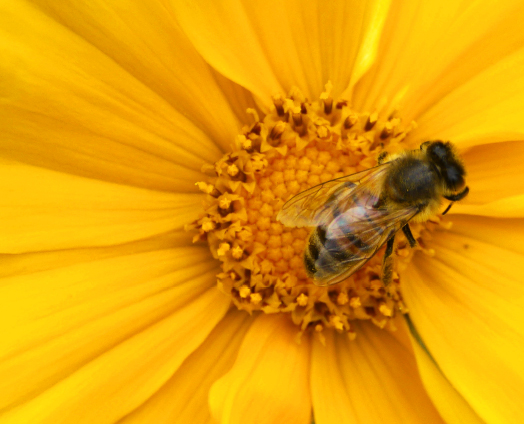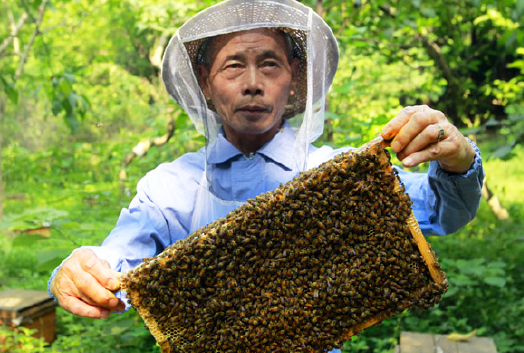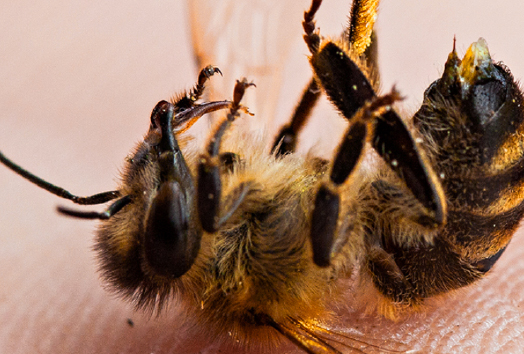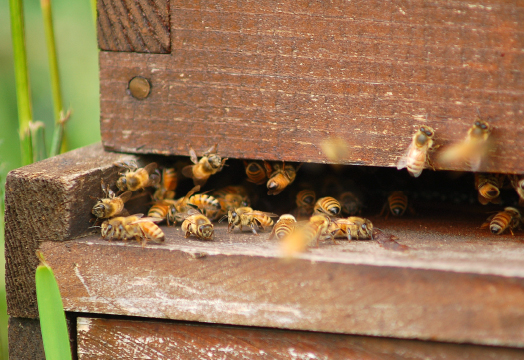The Worldwide Bee Crisis
Collapse of Honey Bee Colonies
Over the past decade, managed bee colonies have suffered sharp declines in Europe and the US. This decline is now also being observed in China and Japan, and there are first signs of African collapses in Egypt as well, according to a report from the United Nations Environment Programme. The exact cause of the collapse of honey bee colonies remains a mystery, but experts agree that it is fast becoming a global phenomenon and is threatening crops around the world due to the crucial role bees play in pollination.
History of Bee Colony Loss
In Europe, declines in bee colonies date back to the mid-1960s, but have been accelerating at an unprecedented rate since 1998. In North America, losses of colonies since 2004 have left the continent with fewer managed pollinators than at any time in its history of the last 50 years.

In the fall of 2006, some beekeepers in the US began reporting losses of 30 to 90 per cent of their hives. While colony losses are not unexpected, especially over the winter months, this magnitude of losses was alarmingly high. In the majority of the cases, very low or no adult honey bees were present in the hive, which meant that a live queen was left to sustain the production of honey with not a single worker bee around. Scientists call this unusual 'societal' condition Colony Collapse Disorder (CCD). CCD could annihilate as much as 90 per cent of a colony.

While CCD seems to be less of a problem in recent years, losses of bee colonies remain high. The US Agricultural Research Service's annual bee survey in 2015 reported that a worrying 42.1 per cent of colonies in the US died off in the year between April 2014 and April 2015.
Crisis Spreading to Rest of the World
Chinese beekeepers have recently been facing complex and perplexing symptoms of colony losses, as a result of which some have had to pollinate fruit trees manually. Not far away, in Japan, about a quarter of beekeepers have reported sudden losses of bee colonies. In Egypt, beekeepers along the Nile have reported signs of CCD, though there are as yet no confirmed reports from the rest of the African continent.
The decline of bee colonies has had profound impact on the crop production around the world. Of the 100 crop species supplying 90 per cent of the world's food, over 70 are pollinated by bees. It is ironic that despite huge advances in technologies over the past century, the bee crisis show that human beings are more, not less, dependent on nature and the synergies between living organisms.
Possible Causes
Various factors seem to be acting together to cause the decline in the honey bee population worldwide. Habitat degradation, including the loss of flowering plant species that supply food to bees; air pollution, which may interfere with bees' ability to locate flowering flowers; certain insecticides, including 'systemic' insecticides which can migrate to different parts of the plant as it grows and be consumed by bees via nectar and pollen; parasites and pests, such as the well-known Varroa mite are all believed to be causes for the loss of honey bees.
Mitigation
To stop the loss of bee colonies, some countries are investing in research on ways of producing genetically engineered bees that are mite-resistant. Releasing genetically modified bees is bound to be controversial, and it will take years of trial and error before a successful method of developing a better bee can be achieved.


Meanwhile, the European Union has moved to ban three pesticides that have been known to cause the death of bees. However, their proposed ban in 2013 was met with legal action. The US, on the other hand, has thus far been reluctant to consider legal bans to pesticides because of powerful lobbyists representing large agricultural farms.
More and more farmers are adopting ecological, organic farming to preserve wild habitats and protect bees. Ecological farming resists insect damage by avoiding large monocrops and preserving ecosystem diversity. It also restores soil nutrients with natural composting systems, prevents soil loss from wind and water erosion, and avoids the use of pesticides and chemical fertilizers.
Organic farming is, of course, nothing new. It is the way most farming has traditionally been done throughout human history. However, organic farming so far has not made economic sense to many farmers. Advocates are urging financial and research support from industry and government in order to build sustainable farming. This, they believe, will save the bees, and saving the bees will in turn save the crops that will be consumed by human beings.


